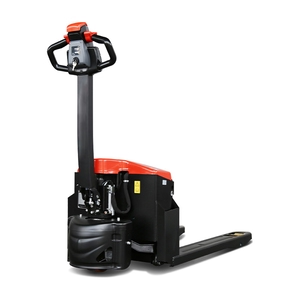When it comes to choosing the right forklift for your business, one of the key decisions you’ll need to make is whether to go with an electric forklift or a diesel forklift. Both types of forklifts have their own set of advantages and considerations, so it’s important to carefully weigh your options before making a decision.
Advantages of Electric Forklifts
Electric forklifts are becoming increasingly popular in modern warehouses and distribution centers due to their lower operating costs and environmental benefits. One of the main advantages of electric forklifts is their lower maintenance costs compared to diesel forklifts. Electric forklifts do not require oil changes, fuel filters, or other traditional maintenance tasks associated with diesel forklifts, which can save your business time and money in the long run.
Environmental Considerations
In addition to lower maintenance costs, electric forklifts are also quieter and produce zero emissions, making them a more environmentally friendly option for businesses looking to reduce their carbon footprint. This can be especially important for businesses operating in indoor spaces or in areas with strict emissions regulations.
Advantages of Diesel Forklifts
On the other hand, diesel forklifts are still a popular choice for businesses that require heavy lifting capabilities and extended operating hours. Diesel forklifts are known for their higher torque and lifting capacities compared to electric forklifts, making them a better choice for heavy-duty applications.
Durability and Outdoor Use
Diesel forklifts are also typically more durable and can handle rougher terrain and outdoor conditions better than electric forklifts. If your business operates primarily outdoors or in rugged environments, a diesel forklift may be a more suitable option to ensure productivity and efficiency.
Considerations for Your Business
When considering the right forklift for your business, it’s important to also take into account the specific needs of your operation. Electric forklifts are best suited for businesses with indoor operations, limited operating hours, and lighter lifting requirements. On the other hand, diesel forklifts are ideal for businesses with heavy-duty lifting needs, outdoor operations, and extended operating hours.
Cost Considerations
In terms of upfront costs, electric forklift tend to have a higher initial price compared to diesel forklifts. However, the lower maintenance costs and operational savings over time can make electric forklifts a more cost-effective option in the long run.
Making the Decision
Ultimately, the decision between an electric forklift and a diesel forklift will depend on your business’s specific requirements, budget, and environmental considerations. It’s important to carefully weigh the pros and cons of each type of forklift and consider how they align with your business’s goals and operations. By evaluating the overall cost of ownership, maintenance requirements, environmental impact, and lifting capabilities, you can make an informed decision on whether an electric forklift or a diesel forklift is the right choice for your business.
